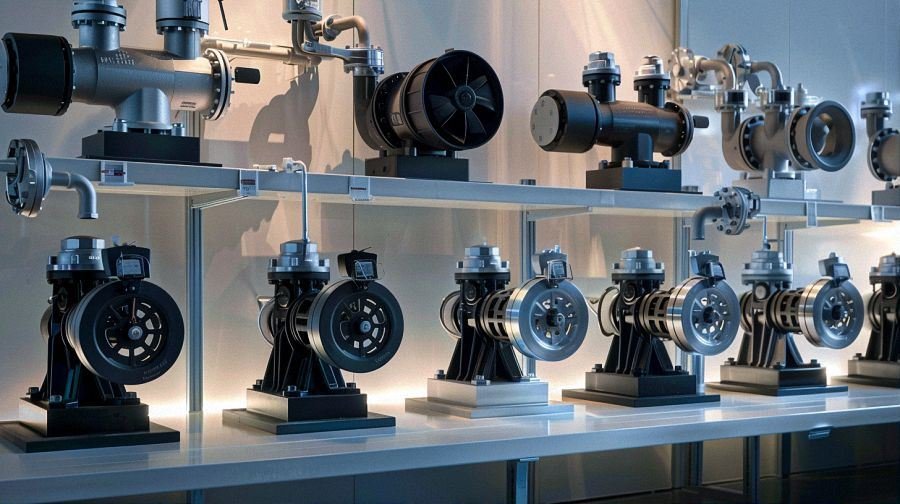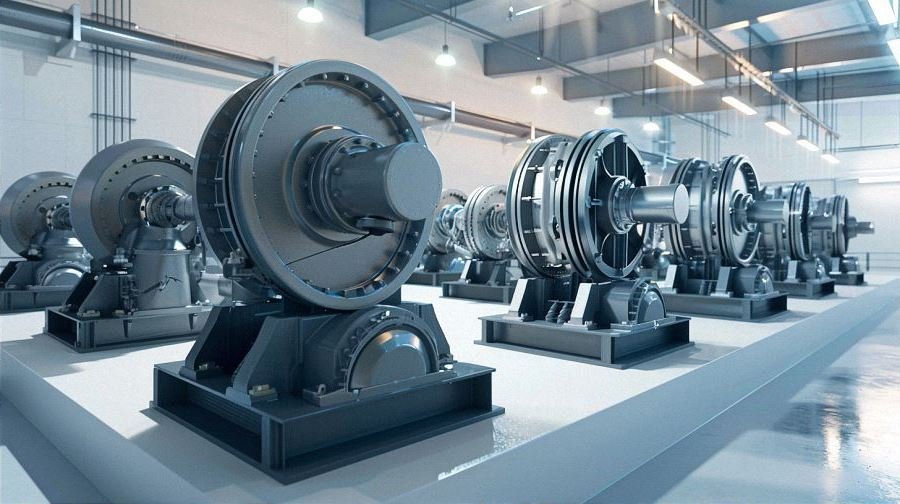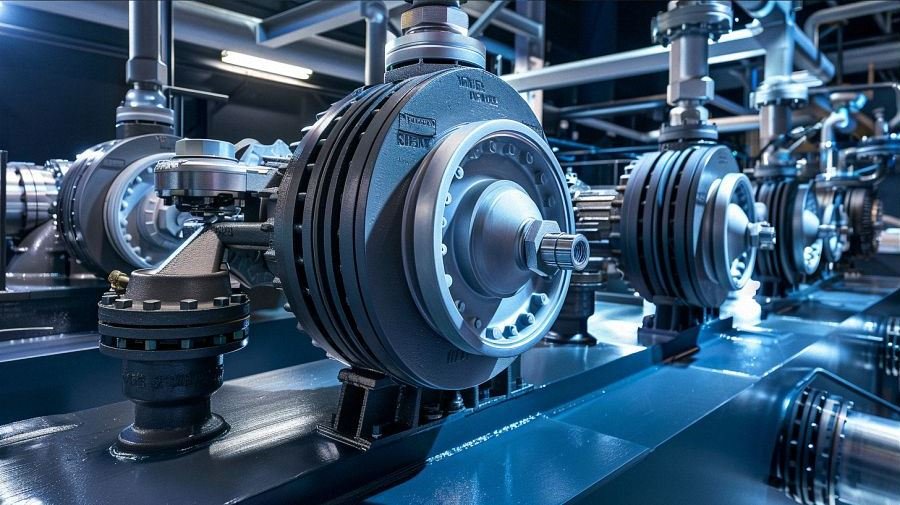Centrifugal Pump for Well: Maximize Efficiency!

Choosing the Right Well Pump: Factors to Consider
Depth and Type of Well: Assessing Depth and Water Quality
When diving into the world of well pumps, understanding the depth and type of your well is paramount. Is your well shallow, deep, or somewhere in between? Are you dealing with a dug well, driven well, or drilled well? Each type requires a different approach and equipment to ensure optimal performance.
Contents
ToggleAssessing Depth: Consider the depth of your well. Is it 10 meters deep, or do you need a pump capable of reaching depths of 20 meters or more? Deeper wells often require more powerful pumps with greater lift capabilities to draw water efficiently to the surface.
Water Quality: Another crucial factor is the quality of the water in your well. Is it clean and clear, or do you need a pump designed to handle sediment, debris, or even dirty water? Centrifugal pumps, known for their versatility, can handle a wide range of water conditions, making them suitable for various well types and water qualities.
Pump Capacity and Flow Rate: Matching Pump Performance to Well Requirements
Selecting a well pump with the right capacity and flow rate is essential to meet your household or agricultural water needs efficiently.
Pump Capacity: Consider the water demand of your household or irrigation system. Do you require a pump with a high capacity to deliver large volumes of water quickly, or is a lower capacity pump sufficient for your needs? Centrifugal pumps offer a range of capacities to suit different applications, from small-scale residential use to commercial agriculture.
Flow Rate: The flow rate of a pump determines how much water it can deliver per unit of time. Are you looking for a pump that can deliver a steady flow of water for continuous usage, or do you need a pump with variable speed control to adjust flow rates as needed? Centrifugal pumps excel in providing consistent flow rates, making them suitable for both domestic and industrial applications.
Power Source and Energy Efficiency: Selecting the Most Suitable Power Supply
Choosing the right power source for your well pump is crucial for reliable operation and energy efficiency.
Power Source: Consider whether your well pump will be powered by electricity, solar energy, or a generator. Each power source has its advantages and limitations, depending on factors such as availability, reliability, and environmental impact. Centrifugal pumps are compatible with various power sources, making them adaptable to different locations and off-grid setups.
Energy Efficiency: Efficiency is key to reducing operational costs and environmental impact. Look for pumps with high energy efficiency ratings and features such as variable speed drives or energy-saving modes. Centrifugal pumps are known for their energy-efficient operation, helping you save on electricity bills while minimizing carbon footprint.
In conclusion, when choosing a centrifugal pump for your well, consider factors such as well depth, water quality, pump capacity, flow rate, power source, and energy efficiency. By carefully evaluating these aspects and selecting the right pump for your specific requirements, you can ensure reliable water supply for your household or agricultural needs.

Submersible vs. Centrifugal Well Pumps: A Comparative Analysis
Submersible Well Pumps: Efficient and Low-Maintenance Solutions
Submersible well pumps have gained popularity for their efficiency and ease of maintenance. These pumps are installed underwater, directly in the well, eliminating the need for priming and reducing the risk of pump cavitation. Their submerged placement also ensures quieter operation and protection against harsh weather conditions.
Advantages of Submersible Pumps
- Efficiency: Submersible pumps are known for their high efficiency, as they push water rather than pull it, reducing energy consumption and operational costs.
- Low Maintenance: Once installed, submersible pumps require minimal maintenance, thanks to their sealed construction that protects internal components from debris and contamination.
- Space-Saving Design: By being submerged in the well, submersible pumps save space compared to surface-mounted pumps, making them ideal for compact installations.
- Durability: Submersible pumps are designed to withstand the rigors of continuous operation underwater, ensuring long-term reliability and performance.
Popular Models such as Grundfos SQFlex 11
One notable example of a submersible well pump is the Grundfos SQFlex 11. This model is renowned for its versatility and efficiency, capable of running on both solar and grid power. With its advanced motor design and corrosion-resistant materials, the SQFlex 11 delivers consistent performance even in challenging environments.
Centrifugal Well Pumps: Versatile and Cost-Effective Options
Centrifugal well pumps are another popular choice for well water extraction, offering versatility and cost-effectiveness. Unlike submersible pumps, centrifugal pumps are typically installed above ground, with a suction pipe extending into the well. They utilize centrifugal force to draw water up to the surface, making them suitable for various well depths and water conditions.
Advantages of Centrifugal Pumps
- Versatility: Centrifugal pumps can handle a wide range of water conditions, including sandy or muddy water, making them suitable for wells with varying water quality.
- Cost-Effective: Compared to submersible pumps, centrifugal pumps are often more affordable upfront, making them a preferred choice for budget-conscious consumers.
- Easy Installation: Installation of centrifugal pumps is relatively straightforward, as they are mounted above ground and do not require submersion in the well. This ease of installation can save both time and labor costs.
- Accessibility: Because centrifugal pumps are located above ground, they are easier to access for maintenance and repairs, reducing downtime and inconvenience.
Notable Models like the Goulds J7S
One noteworthy centrifugal pump model is the Goulds J7S, known for its rugged construction and reliable performance. This pump features a corrosion-resistant stainless steel casing and impeller, ensuring durability and longevity even in harsh environments. With its efficient motor and hydraulic design, the Goulds J7S delivers consistent water flow and pressure, making it suitable for both residential and agricultural applications.
In summary, both submersible and centrifugal well pumps offer unique advantages depending on the specific requirements and conditions of the well. While submersible pumps excel in efficiency and low maintenance, centrifugal pumps provide versatility and cost-effectiveness. By understanding the differences between these pump types and evaluating their features, consumers can make informed decisions to meet their well water needs effectively.

Best Well Pumps for Different Requirements: Recommendations and Reviews
Best Overall Well Pump: Evaluating Performance, Durability, and Value
When it comes to selecting the best overall well pump, several factors must be taken into consideration to ensure optimal performance, durability, and value for money.
Performance: The best overall well pump should deliver consistent and reliable performance, meeting the water demands of your household or agricultural operation without fail. It should have sufficient capacity and flow rate to provide adequate water supply at all times.
Durability: Durability is another crucial aspect to consider. The pump should be constructed from high-quality materials that can withstand the rigors of continuous operation and exposure to environmental elements. Look for pumps with corrosion-resistant components and robust construction to ensure longevity.
Value: While performance and durability are essential, the best overall well pump should also offer excellent value for money. Consider factors such as initial cost, energy efficiency, and maintenance requirements to determine the long-term cost-effectiveness of the pump.
One well pump that stands out as a top choice for overall performance, durability, and value is the Franklin Electric 4″ Submersible Well Pump. This pump boasts a reliable motor and stainless steel construction, ensuring durability and corrosion resistance. With its high efficiency and robust design, the Franklin Electric pump provides reliable water supply for residential, agricultural, and industrial applications, making it a solid investment for any well owner.
Best for Shallow Wells (Up to 10 meters): Optimized Solutions for Limited Depths
For shallow wells with depths of up to 10 meters, specialized pumps are available to provide optimized solutions tailored to these limited depths.
Efficiency: Pumps designed for shallow wells are optimized for efficiency, delivering maximum performance with minimal energy consumption. These pumps are typically smaller in size and require less power to operate, making them cost-effective solutions for shallow well applications.
Compact Design: Another advantage of pumps for shallow wells is their compact design, which allows for easy installation in confined spaces. These pumps are often lightweight and portable, making them suitable for DIY installation or temporary setups.
One standout option for shallow well applications is the Goulds J5S Shallow Well Jet Pump. This pump is specifically designed for wells with depths of up to 25 feet and offers excellent performance in a compact and cost-effective package. With its durable construction and efficient motor, the Goulds J5S provides reliable water supply for residential and light commercial use, making it an ideal choice for shallow well owners.
Best for Deep Wells (20 meters or More): High-Power Pumps with Sand-Handling Capabilities
Deep wells with depths of 20 meters or more require high-power pumps capable of handling sand and sediment to ensure efficient water extraction.
High Power: Pumps for deep wells are equipped with powerful motors and high-capacity impellers to provide sufficient lift and flow rate for deep water extraction. These pumps are designed to operate reliably even at extreme depths, delivering consistent performance in challenging conditions.
Sand-Handling Capabilities: One of the key features of pumps for deep wells is their ability to handle sand and sediment without clogging or damage. These pumps are equipped with specialized components such as sand guards and abrasion-resistant materials to ensure smooth operation in sandy environments.
A top recommendation for deep well applications is the Franklin Electric 6″ Submersible Well Pump. This pump is specifically designed for deep wells with depths of up to 250 feet and offers exceptional performance and durability. With its high-power motor and advanced sand-handling capabilities, the Franklin Electric pump provides reliable water supply for residential, agricultural, and industrial use, making it the best choice for deep well owners.
